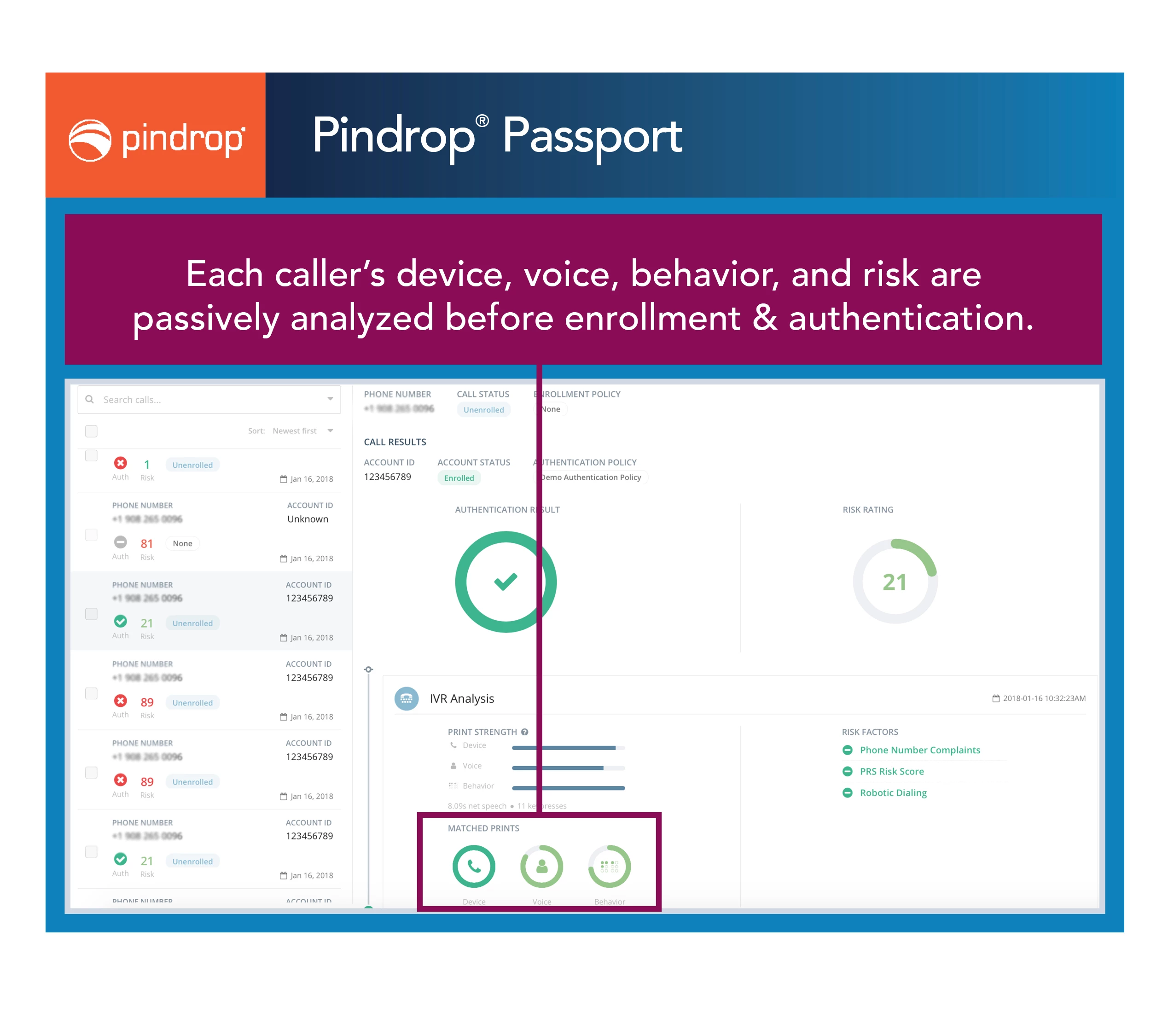
Partner Article
Pindrop announces first-of-its-kind Deep Voice machine learning technology
Pindrop, the pioneer in voice security and authentication, recently announced their proprietary Deep Voice biometric engine, which utilises the latest deep neural network technology for speaker recognition, to passively identify legitimate and fraudulent callers, solely by voice. Pindrop’s Deep Voice engine has expanded the company’s total addressable market from $2.5B to $7.8B with the introduction of a new authentication product, Pindrop® Passport.
Pindrop Passport is a multi-factor authentication solution that passively authenticates callers based on their voice, device and behaviour as they naturally engage with a call centre. Passport is powered by the first-of-its-kind Deep Voice biometric engine that is able to recognise a caller by their voice even with short command-like utterances, regardless of if they are interacting in the IVR or with an agent.
“Our newly patented Deep Voice engine is creating new opportunities for Pindrop as we see voice eating all other interfaces,” said Vijay Balasubramaniyan, CEO and co-founder of Pindrop. “Establishing trust, security and identity is key to unlocking brand loyalty with consumers. With today’s product expansion we are delivering an end-to-end voice identity platform for enterprises looking to reimagine the customer experience as voice becomes the dominant interface of choice.”
Pindrop’s patented Deep Voice biometrics was developed to address a number of shortcomings with the existing systems in the market such as poor enrolment rates and accuracy that are further exacerbated by short utterances and poor call quality. The Deep Voice engine also brings enterprise grade voice security by detecting new voice attacks such as voice synthesis and distortion and will usher in a new era of enterprise virtual assistants, chatbots and frictionless customer experiences.
Passport is comprised of three core machine learning technologies: Deep Voice biometrics engine, combined with Pindrop’s proprietary Phoneprinting technology and Toneprinting behavioural analytics technology. Passport runs passively in the background of every call and identifies a caller based on who they are based on their voice, what they have based on their device and what they do based on their behaviour. This replaces weaker forms of authentication that currently exist, including asking customers a set of knowledge based questions or laborious enrolment processes. Enterprises can now reduce call handle times by up to 55 seconds and call centre operations costs by up to $1.00 per call, as well as reduce fraud losses and customer churn.
This was posted in Bdaily's Members' News section by Nick Gaubitch .








 £100,000 milestone drives forward STEM work
£100,000 milestone drives forward STEM work
 Restoring confidence for the economic road ahead
Restoring confidence for the economic road ahead
 Ready to scale? Buy-and-build offers opportunity
Ready to scale? Buy-and-build offers opportunity
 When will our regional economy grow?
When will our regional economy grow?
 Creating a thriving North East construction sector
Creating a thriving North East construction sector
 Why investors are still backing the North East
Why investors are still backing the North East
 Time to stop risking Britain’s family businesses
Time to stop risking Britain’s family businesses
 A year of growth, collaboration and impact
A year of growth, collaboration and impact
 2000 reasons for North East business positivity
2000 reasons for North East business positivity
 How to make your growth strategy deliver in 2026
How to make your growth strategy deliver in 2026
 Powering a new wave of regional screen indies
Powering a new wave of regional screen indies
 A new year and a new outlook for property scene
A new year and a new outlook for property scene